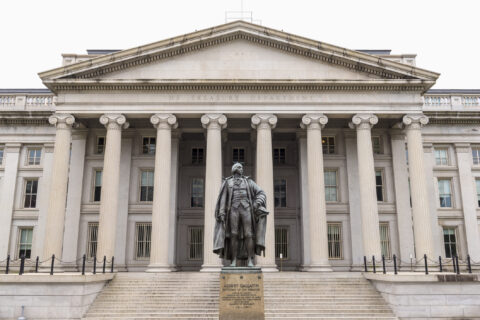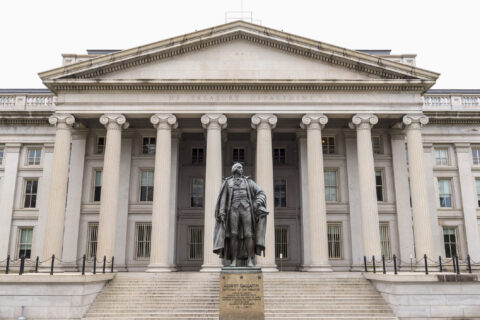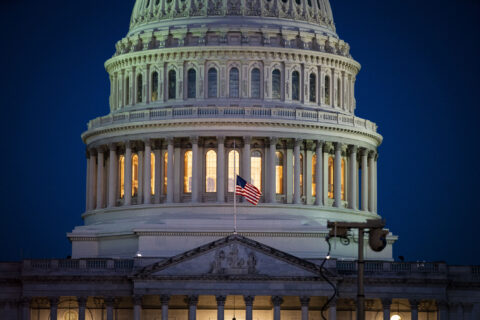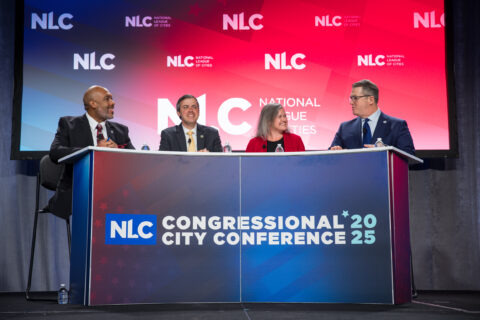Federal assistance is a significant source of funding for state and local governments in the U.S., especially for programs and services that directly support residents. Federal grants accounted for 66 percent of state/local public welfare spending in 2020, up from 55 percent in 1977. Federal assistance helps city finances and budgets by providing resources to address community needs like homelessness, education, health care, public safety and infrastructure.
Federal grants also help state and local governments cope with economic downturns and revenue shortfalls. As one of the largest federal assistance packages in U.S. history, the American Rescue Plan Act (ARPA) provides fiscal relief to address COVID-19’s impact on the economy, public health, municipalities and residents. One key provision of ARPA was to deliver $350 billion in direct aid to state and local governments, of which $65.1 billion went directly to America’s cities, towns and villages through the flexible State and Local Fiscal Recovery Funds (SLFRF) program.
Municipalities and the Inflation Challenge
Global and US inflation continue to be a topic of great concern for many policymakers. According to the International Monetary Fund (IMF), global inflation peaked in late 2022 at 8.8 percent and is expected to slowly decline to 4.3 percent in 2024. Inflation in the US slowed to 6 percent in February 2023, the lowest since September 2021.
High inflation can harm the U.S. and local economies in many ways, directly impacting local governments and their residents. It lowers growth, discourages investment, distorts prices, creates financial instability and increases debt burdens. It can also reduce social welfare by increasing inequality, poverty, and hardship for low-income households. It also erodes the value of public pensions, benefits, revenues and public debt.
Municipal governments can mitigate some of the impact of high inflation, such as through adjustments to budgets, revenues, expenditures and debt management. However, these measures to cope with high inflation only go so far and municipalities ultimately depend on federal interventions and monetary policies to bring inflation under control.
The Looming Recession
The COVID-19 pandemic has had a devastating impact on state and local budgets, forcing many governments to cut spending, lay off workers and draw down reserves. While some states have seen revenues rebound due to the uneven nature of this recession, many municipalities are still struggling to cope with the fiscal fallout of the public health crisis.
Looking ahead, municipal governments face many uncertainties and challenges as they continue recovering from the pandemic and prepare for potential future shocks. Some of the factors that could affect their fiscal outlook include:
- ARPA not only supported local government revenues, but additional funds supported necessary services like education, transportation and health care. As the economic outlook remains uncertain, it is unclear whether further federal assistance will be available if the economic recovery stalls or another crisis hits.
- The pandemic may have accelerated some trends that could have lasting implications for state and local revenues and expenditures, such as remote work, online shopping, telehealth and urban-rural migration. These changes could affect the demand for public services and infrastructure, as well as the tax base and tax policy of municipal governments.
Given these uncertainties and challenges, one way that the federal government can help municipalities cope with a recession is by providing grants. In the past, federal grants have been effective in mitigating the impact of the recessions on municipal budgets and economies. For instance, it is estimated that American Reinvestment and Recovery Act (ARRA) increased real GDP by between 0.7 percent and 4.1 percent and lowered the unemployment rate by between 0.3 percentage points and 1.8 percentage points in 2010.
The COVID-19 pandemic and its aftermath have severely impacted the fiscal health of city governments across the US. As the country faces another potential recession, federal assistance is crucial to help localities maintain essential services, invest in infrastructure and recovery, and support vulnerable populations. Without adequate and flexible federal aid, municipal governments could be forced to cut spending, lay off workers and raise taxes, further hampering economic growth and social equity. Therefore, it is imperative that the federal government provides sufficient and timely assistance to municipal governments in the wake of another economic slowdown.
Learn More
Learn more about how ARPA helped cities, villages and towns recover from the COVID-19 pandemic in NLC’s report celebrating ARPA’s 2-year anniversary.








